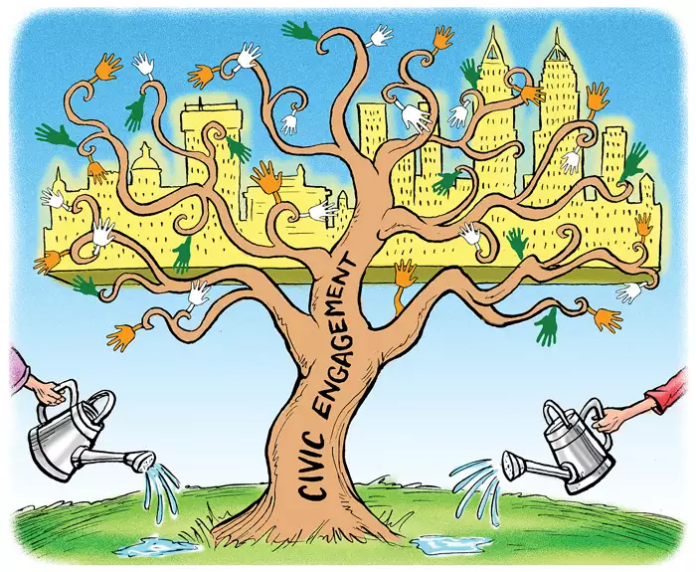Source: timesofindia.com
By Maler Suresh
Gen Z is on track to be the most diverse, educated, and socially active generation yet. We are growing up against the backdrop of a pandemic, a new reckoning of racial justice, and extreme political polarization. According to a study conducted by the Tufts Center for Information and Research on Civic Learning and Engagement (CIRCLE), 79% of young people say that COVID-19 has made them realize the importance of politics in their everyday lives, and 83% believe that their generation has the power to create change. However, our schools aren’t keeping up.
According to the National Conference of State Legislatures, among the goals of civic education are to teach students to “enter into dialogue among others with different perspectives” and give students the “skills, knowledge, and commitment needed” to participate in public actions, like voting. They cite these goals as some of the main reasons for establishing public schools. Yet, many students, myself included, are unsure about what exactly the voter registration and voting process even looks like. More than that, many students have not learned how to have productive discussions about potentially controversial issues plaguing our country. We learn about the greatness of American democracy and how it came about, but we do not learn how to use American democracy to better our future.
According to Paula McAvoy, a professor at North Carolina State University, educators refrain from teaching politics for three main reasons: 1.) They are uncomfortable discussing issues that are not in their area of expertise 2.) They fear that discussing certain topics might cause classroom management problems, and 3.) They fear push back from administrators and parents. In the quest to be unbiased, public education has developed a fear of teaching about the very things it was created to teach, even on the most practical level, like explaining how to cast a mail-in ballot.
The effects of this lack of education disproportionately affects students among the already most marginalized groups in society. For proof, we need not look farther than the most recent election. Because of the pandemic, a record amount of mail-in ballots were cast. However, in a study conducted by CIRCLE, at least 2 in 5 youth in the Black community, had never seen information about how to vote by mail or absentee, and the same percentage said they would not know where to get that information if their state’s election were to shift to all-mail in November. Even to a teenager who knows exactly who they want to vote for, the voting process is intimidating, especially when you add in the complexities of voting by mail and the voter suppression tactics that are used in some states. The likelihood that a young person will vote is dependent on the amount of information they have about how to vote. And the amount of information they have about how to vote is largely dependent on their level of education on the matter. Schools have long attempted to serve their role as “the great equalizer,” and the institution that “prepares students for the real world,” but neither thing can be accomplished without teaching students the skill they most need to participate in our democracy.
The solution is a re-education of the education system, so to speak. There should be a bigger focus in the public school system on teaching educators the skills they need to confidently and effectively teach students about civic life. A change in mindset is needed too. As Lorena Germán, chair of the Committee Against Racism and Bias in the Teaching of English, told the New York Times, “This is not about politics. This is about working toward social justice.” Rather than seeing current events as issues to be avoided for fear of disagreement or discomfort, schools should see these events as opportunities to inform a new generation on what is going on in their world in order to give them the best chance of being educated voters. Rather than shying away from controversial topics, our schools should focus on harnessing an already passionate generation’s interest in social issues into a powerful force that can create hope for America’s future.

